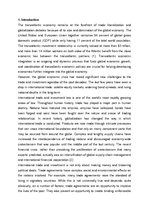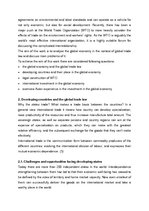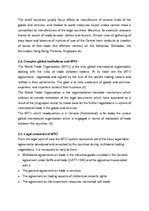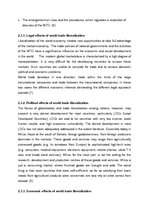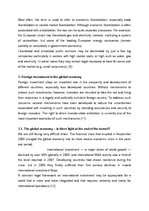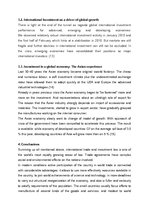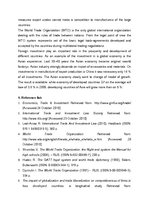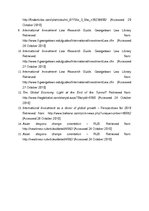However, the global economic crisis has raised significant new challenges to the trade and investment agendas of the past decades. The last few years have seen a drop in international trade, volatile equity markets, widening bond spreads, and rising national depths in the long-term.
International trade and investment law is one of the world’s most rapidly growing areas of law. Throughout human history, trade has played a major part in human destiny. Nations have matured into empires, empires have collapsed, bonds have been forged and wars have been fought over the nature and scope of trading relationships. In recent history, globalization has changed the way in which international trade is conducted. Products are now made through intricate processes that can cross international boundaries and that rely on many component parts that may be sourced from around the globe. Complex and lengthy supply chains have increased the interdependence of trading nations and discouraged economy-wide protectionism that was popular until the middle part of the last century. The recent financial crisis, rather than provoking the proliferation of protectionism that many experts predicted, actually saw an intensification of global supply-chain management and international financial cooperation.(2)…
The transatlantic economy remains at the forefront of trade liberalization and globalization debates because of its size and domination of the global economy. The United States and European Union together comprise 54 percent of global gross domestic product (GDP) while only having 11 percent of the total world population. The transatlantic investment relationship is currently valued at more than $3 trillion, and more than 14 million workers on both sides of the Atlantic benefit from the close economic ties between the transatlantic partners (1). Transatlantic economic integration is an ongoing and dynamic process that fuels global economic growth, and coordination of transatlantic economic policies are crucial for helping developing economies further integrate into the global economy.

